Losing a dog to unknown circumstances is a devastating experience that no one can prepare you for. One day, he’s out there doing his regular doggo chores and being the happiest tail-wagging furball in the world, and the very next day – he’s gone!
This shocking moment struck Giorgi Bereziani when he found out that his loyal companion, Jorge, wasn’t around anymore! Giorgi spent years looking for his dog without any success until he finally got a life-changing call.
After Jorge’s Disappearance, Giorgi Did Everything To Track Him Down
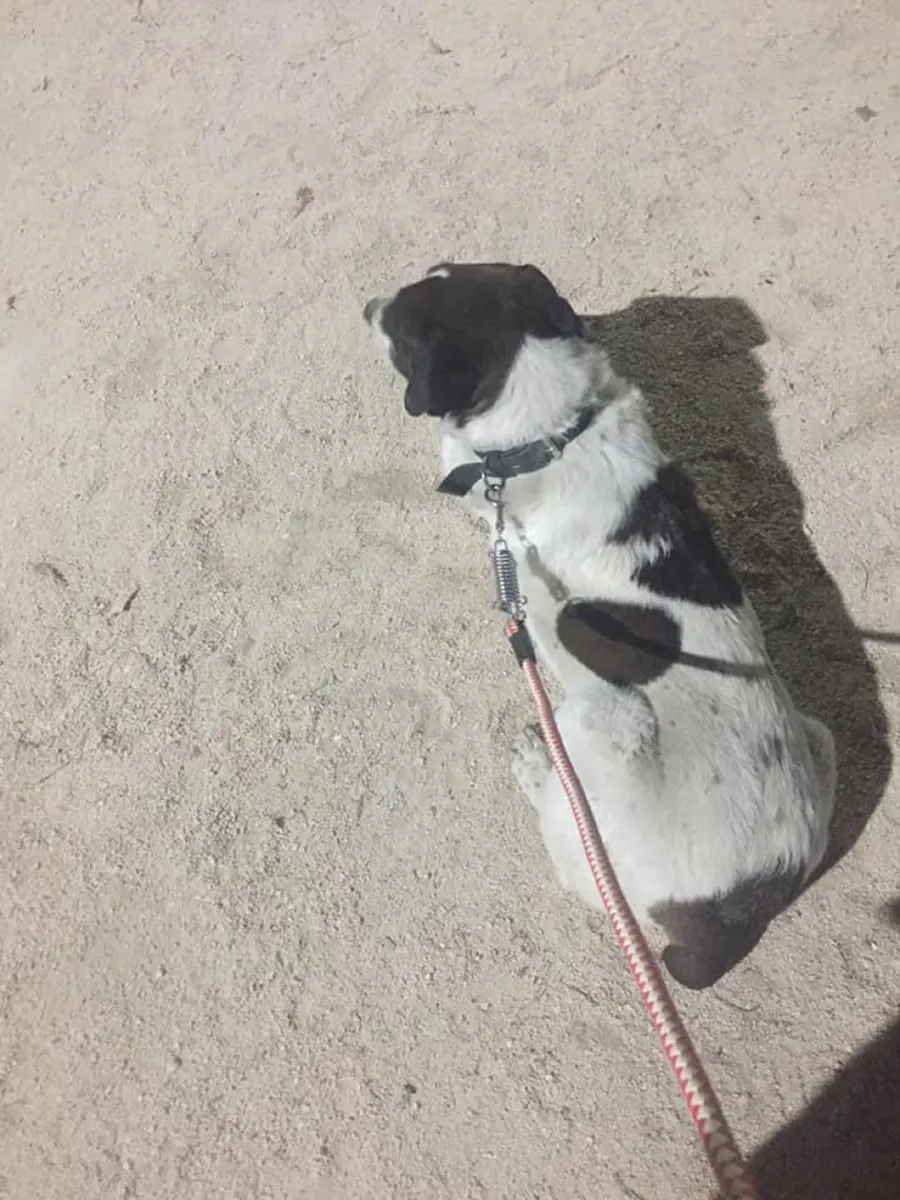
Never in his dreams could Girogi imagine that he’d lose his buddy, Jorge. It was a difficult, heart-breaking day for this 67-year-old man when he realized that his furry buddy wasn’t around anymore.
After the initial shock, Giorgi gathered himself and did everything in his power to help Jorge find his way home. He was putting up fliers all over the city, and combing the streets, but everything seemed like a lost cause.
He wasn’t alone in this quest, though. Giorgi had family members and a lot of friends helping him out, which made the whole situation easier for him. Still, with no signs of Jorge – Giorgi was feeling worse every single day.
Months Turned To Years With No Clue
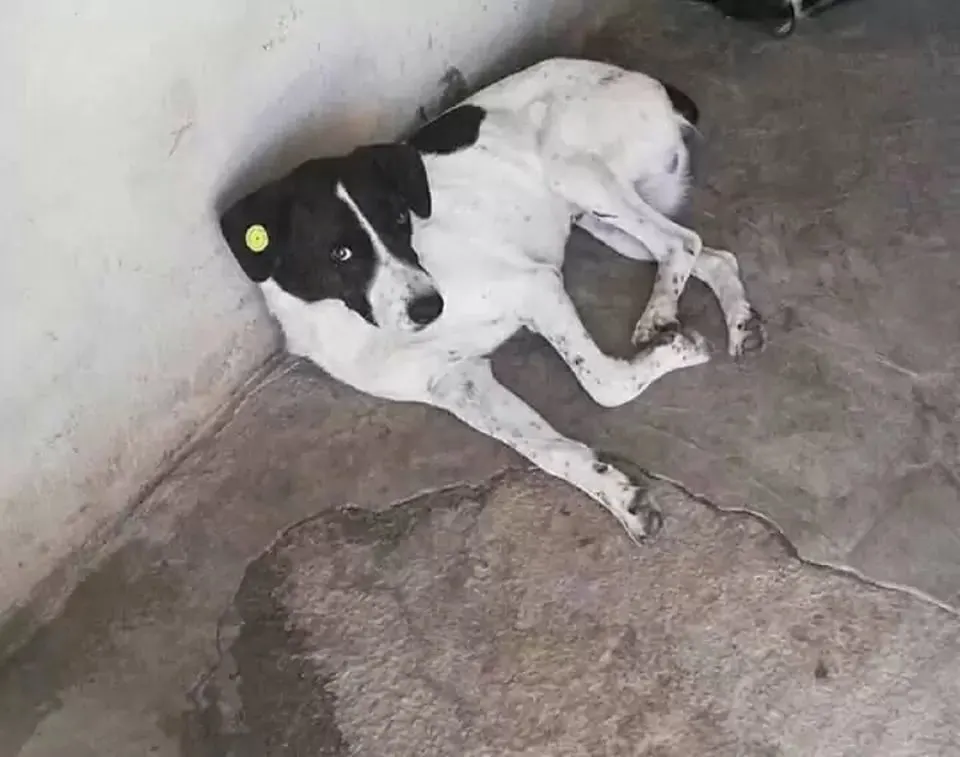
Months of searching turned to years, and there was still no clue of Jorge. Even though everything seemed lost, Giorgi never lost hope that one day, he’d meet with his buddy again! Still, years went by, and no one in Giorgi’s family expected Jorge to come back home anymore.
But, then one day, three years after Jorge’s disappearance, the phone rang! Workers from an opera house in called Giorgi and said that the same-looking dog like his Jorge was wandering around the building.
Jorge And Giorgi’s Emotional Reunion
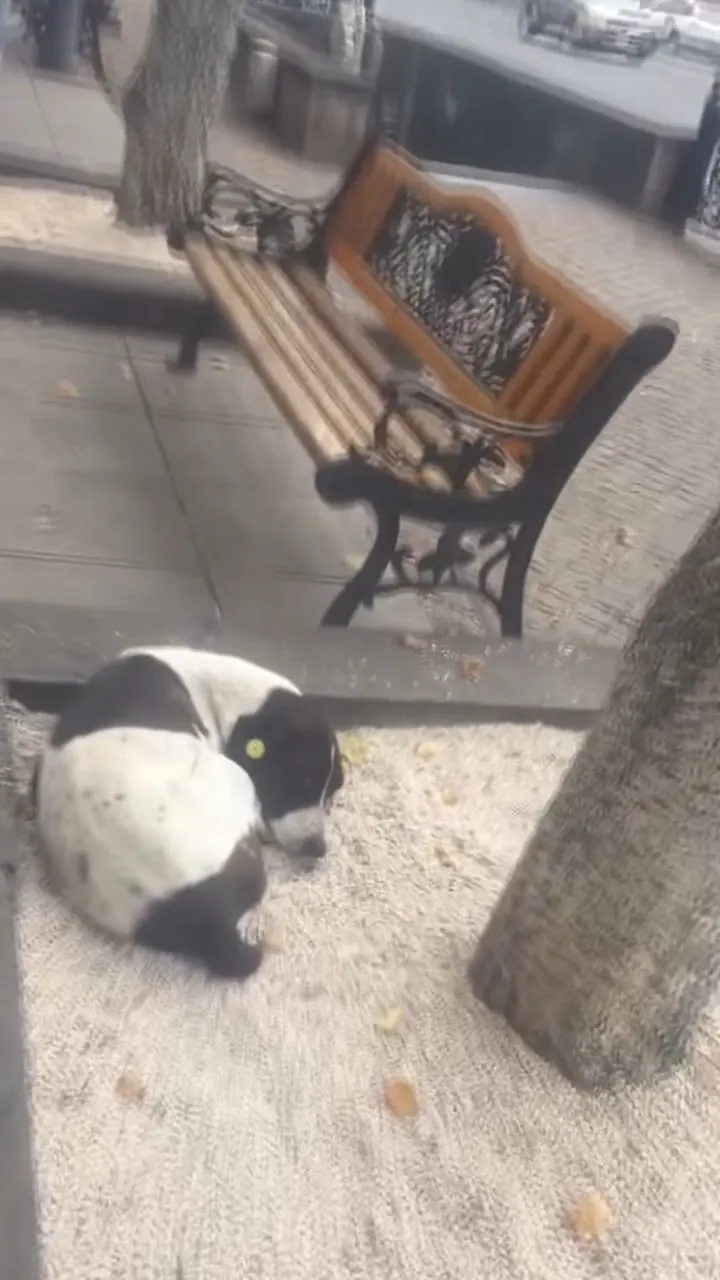
Giorgi immediately got in the car and drove himself to the spot. He wasn’t sure that the dog lying near the opera house was Jorge, so he decided to step a little closer. When he finally approached him, he called him with the words: “Jorge, is that you?”
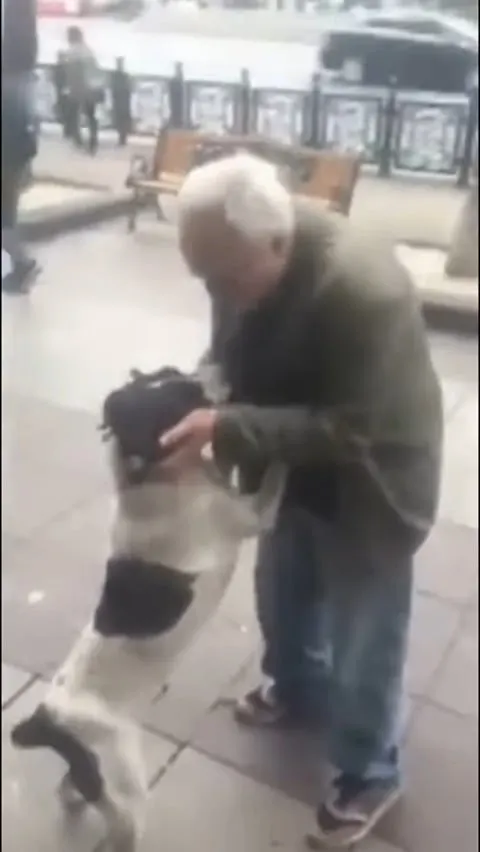
The dog instantly rose from the floor and started wagging his tail! When Giorgi addressed him again with the words: “Dear boy, how are you,” Jorge started crying with joy loudly, wrapping himself around Giorgi’s legs!
Both the dog and the owner were so excited to finally meet each other after all those years, making this reunion heartbreaking for everybody who was around at that time! Jorge was fine, all throughout this time wandering in the streets, probably looking for his long-lost owner.
He had a tag on his ear, which meant that he was vaccinated by animal control, deemed harmless to society, and released back on the street.
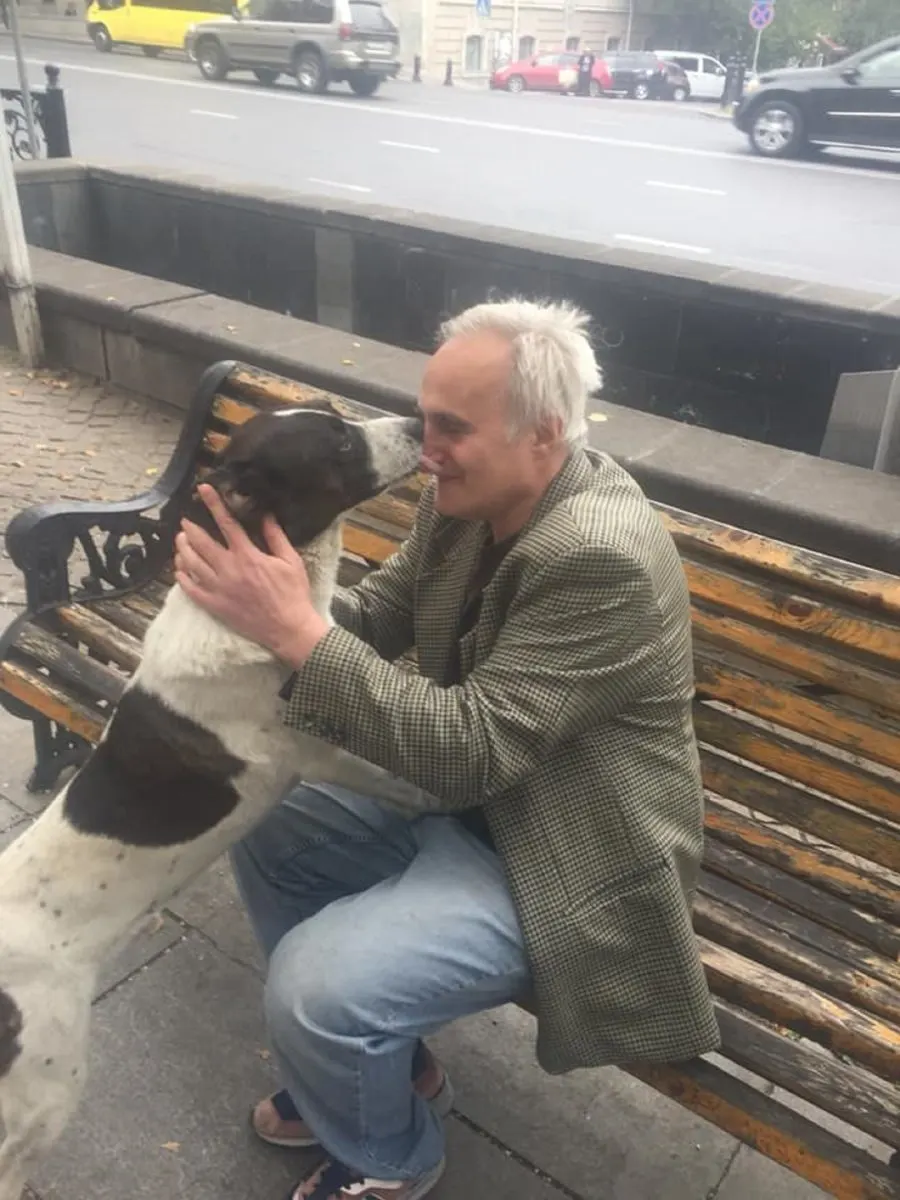
The video of Giorgi reuniting with his dog soon went viral, getting thousands of reactions from all over the world! His long-lost buddy was finally on his way back home, and Giorgi couldn’t be happier!
Ever noticed your furry companion letting out a big yawn, even when they’re not sleepy? Dogs, just like us, have their way of communicating, and yawning is more than just a sign of tiredness. It’s a subtle yet significant part of their behavior that often goes unnoticed. Understanding why dogs yawn can provide fascinating insights into their emotions and well-being. As a seasoned dog trainer, you’re well aware that decoding these subtle cues is key to strengthening your bond with your four-legged friend.
When your canine buddy lets out a yawn, it’s like a window into their world, offering a glimpse into their state of mind. From relaxation to stress, excitement to empathy, a yawn can convey a spectrum of emotions that your dog might not express otherwise. So, the next time you catch your furry friend yawning, remember, there’s more to it than just a simple reflex. Stay tuned as we unravel the mysteries behind why dogs yawn and what it reveals about their inner world.
Understanding Yawning in Dogs
The Basics of Canine Yawns
When your dog yawns, it’s not always a sign of sleepiness. Dogs yawn for various reasons beyond just being tired. Just like humans, they use yawning as a form of communication. It can indicate relaxation, stress, excitement, or even empathy. Understanding the basics of why dogs yawn can provide insights into your furry friend’s emotions and well-being.
The Science Behind the Yawn
Yawning in dogs has a scientific explanation. It’s not merely a reflex but a way for them to communicate non-verbally. Dogs yawn to communicate a range of emotions, from being calm and content to feeling anxious or tense. This behavior is ingrained in their instincts and can vary based on different situations and environments. By delving into the science behind the yawn, you can better interpret your dog’s state of mind and respond to their needs effectively.
Common Misconceptions About Dog Yawning
Yawning as a Sign of Boredom
Some people believe that dogs yawn solely out of boredom, but that’s not always the case. While yawning can indicate fatigue, it can also signal stress, anxiety, or excitement in dogs. So, it’s essential not to jump to conclusions and consider other factors contributing to your furry friend’s behavior.
Yawning Solely for Oxygen
Another common misconception is that dogs yawn solely to increase oxygen intake. While yawning may help dogs regulate their body temperature and potentially boost alertness, it’s not primarily for oxygen. Dogs yawn for various reasons beyond the need for more air, such as communication and social cues. So, next time your pup yawns, remember it might not be just about catching a breath.
Emotional Reasons Why Dogs Yawn
Stress and Anxiety-Related Yawning
When dogs yawn, it’s not always a sign of tiredness. Yawning can also indicate stress or anxiety. Similar to humans who yawn when nervous, dogs may yawn in uncomfortable situations, such as during a visit to the vet or when exposed to loud noises. Pay attention to your pup’s yawns in these contexts, as they could be telling you that they need reassurance and support.
Yawning as a Calming Signal
Yawning in dogs serves as a calming signal, especially in social interactions with other dogs or humans. Your furry friend might yawn when meeting a new dog to alleviate tension and show that they come in peace. Similarly, when you’re training your dog or introducing them to new environments, yawning can be their way of trying to diffuse any potential stress or excitement. Recognizing these calming signals can help you create a more comfortable and secure environment for your four-legged companion.
Physiological Reasons for Dog Yawning
The Brain Cooling Hypothesis
When your dog yawns, it may not just be about tiredness or boredom; the brain cooling hypothesis suggests that yawning helps regulate brain temperature. Dogs have fewer sweat glands compared to humans, making it harder for them to cool down. Yawning could potentially increase blood flow to the brain, allowing for heat exchange, helping your furry friend stay cool. While more research is needed to fully understand this theory, it sheds light on another possible reason behind your dog’s yawns.
Yawning as a Response to Medications
Have you noticed your dog yawning more after taking certain medications? Yawning can be a side effect of some drugs, especially those that affect the central nervous system. Medications like pain relievers or sedatives may induce yawning in dogs. If you observe excessive yawning after your pet’s medication, it’s essential to consult your vet to understand if it’s a common side effect or if there’s a need for concern. Monitoring your dog’s yawning habits post-medication can provide valuable insights into their well-being and potential side effects.
Remember, understanding the physiological reasons behind your dog’s yawns can aid in interpreting their behavior and ensuring their health and comfort. By recognizing these subtle cues, you can better care for your canine companion and respond appropriately to their needs.
Observing Canine Yawning in Social Contexts
Yawning in Domestic Dogs vs. Wild Canids
In social contexts, the way domestic dogs and wild canids yawn can offer interesting insights. Domestic dogs have developed yawns as a way to communicate with humans and other dogs due to their close relationship with humans. On the other hand, wild canids such as wolves primarily yawn as a social cue within their pack. This difference in yawning behavior reflects the distinct social structures and communication needs between domestic and wild canids.
Yawning and Canine Communication
Canine communication through yawning is a crucial aspect of their social interactions. Dogs use yawning to maintain social harmony, alleviate tension, and signal feelings of discomfort or stress. When a dog yawns in the presence of another dog or human, it can serve as a form of communication to de-escalate potentially tense situations. Understanding the role of yawning in canine communication can help you interpret your dog’s behavior better and respond appropriately in various social contexts.
Conclusion
So, there you have it – dogs yawn for a variety of reasons beyond just feeling tired or sleepy. It’s their way of expressing emotions, communicating with others, and even cooling down their brains. By understanding the different meanings behind a dog’s yawn, you can better connect with your furry friend and respond to their needs accordingly. Next time you see your dog yawning, remember that it’s more than just a simple reflex – it’s a powerful tool for them to navigate their social world and interact with you in a meaningful way. Keep observing, learning, and building that special bond with your canine companion through the language of yawns.
Frequently Asked Questions
What emotions can dog yawning indicate?
Dog yawning can indicate relaxation, stress, excitement, and empathy, serving as a non-verbal form of communication expressing various emotions.
Is yawning in dogs always linked to boredom?
No, dog yawning can indicate stress, anxiety, or excitement, not just boredom or a need for oxygen, emphasizing the importance of considering multiple factors influencing their behavior.
Why do dogs yawn in social interactions?
Dogs yawn in social interactions as a calming signal to alleviate tension, express discomfort, and maintain social harmony with other dogs or humans.
How does yawning help regulate brain temperature in dogs?
The brain cooling hypothesis suggests that yawning helps regulate brain temperature in dogs, particularly those with fewer sweat glands, aiding in maintaining optimal brain functioning.
What is the significance of monitoring yawning post-medication in dogs?
It is essential to monitor yawning post-medication in dogs as certain medications can induce yawning, requiring attention to ensure the well-being and comfort of pets.
[no_toc]

Hey there, I’m Janet Brooks, a dog-loving student from California. I’m all about helping pups in need, especially those without homes. Me and my awesome friends work together to give shelter and love to stray dogs. Oh, and I also write blogs about dogs to share helpful info.